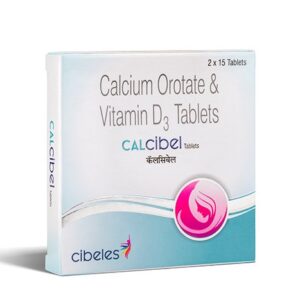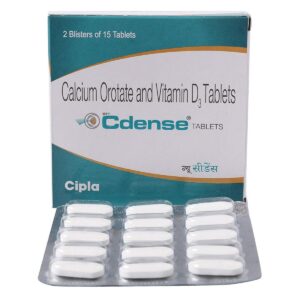LYSINE + VITAMIN D3 (CHOLECALCIFEROL) + CALCIUM OROTATE
Lysine: Lysine is an essential amino acid that is used as a dietary supplement. It is available in both oral and topical forms and is primarily used to treat and prevent cold sores caused by the herpes simplex virus.
Lysine works by inhibiting the replication of the herpes virus, reducing the duration and severity of cold sores. It does this by competing with another amino acid, arginine, which is required by the virus to replicate. Lysine prevents the virus from obtaining arginine and thus limits its ability to reproduce.
The recommended dose of lysine for the treatment of cold sores varies but typically ranges from 1,000 to 3,000 mg per day. It is often taken as a daily supplement to prevent recurrences, with a typical maintenance dose ranging from 500 to 1,000 mg per day. Topical lysine ointments can also be applied directly to cold sores for symptom relief.
Lysine is generally safe for most people when taken orally or applied topically. However, some individuals may experience mild gastrointestinal symptoms, such as nausea, diarrhea, or abdominal pain. Extremely high doses of lysine may cause elevated cholesterol levels, gallstones, or renal dysfunction. People with certain medical conditions, such as kidney disease or liver disease, should exercise caution when taking lysine and consult with a healthcare professional.
Additionally, lysine can interact with other medications, such as aminoglycoside antibiotics or certain antiviral drugs, so it’s important to inform your healthcare provider about all medications you are taking before starting lysine supplementation.
Overall, lysine is a well-tolerated and effective supplement for the treatment and prevention of cold sores caused by the herpes simplex virus. However, it is always recommended to consult with a healthcare professional before starting lysine supplementation to ensure it is the right choice for you and to determine the appropriate dosage.
Vitamin D3 (cholecalciferol): Vitamin D3, also known as cholecalciferol, is a form of vitamin D that is naturally produced in the skin when exposed to sunlight. It can also be obtained through dietary sources such as fatty fish and fortified foods. Vitamin D3 is widely used as a supplement to prevent and treat vitamin D deficiency.
The primary role of vitamin D3 is to regulate the levels of calcium and phosphate in the body, which are crucial for maintaining healthy bones and teeth. It promotes the absorption of calcium from the intestine and helps to reabsorb calcium from the kidneys, ultimately ensuring adequate levels of calcium in the bloodstream. Additionally, vitamin D3 plays a role in supporting immune function and reducing inflammation.
The recommended dose of vitamin D3 varies depending on the individual’s age, health condition, and the degree of deficiency. For most adults, the recommended daily intake ranges from 600 to 800 international units (IU). However, higher doses may be prescribed for individuals with severe deficiency or specific medical conditions under the guidance of a healthcare professional.
Vitamin D3 is generally well-tolerated when taken within the recommended dosage range. However, excessive intake of vitamin D3 can lead to toxicity, known as hypervitaminosis D. Symptoms of vitamin D3 toxicity include nausea, vomiting, constipation, weakness, and excessive thirst. Prolonged excessive intake of vitamin D3 can cause hypercalcemia (elevated levels of calcium in the blood), which can lead to kidney stones, kidney damage, and cardiovascular problems.
It’s worth noting that some individuals may be more susceptible to vitamin D3 deficiency, such as those with limited sun exposure, older adults, people with darker skin, and those with certain medical conditions. If you suspect a deficiency or are considering vitamin D3 supplementation, it is recommended to consult with a healthcare professional to determine the appropriate dosage and monitor for any potential side effects.
Calcium Orotate: Calcium Orotate is a drug that contains the mineral calcium in the form of orotic acid. It is commonly used as a dietary supplement to fulfill the body’s calcium requirements.
The mechanism of action of Calcium Orotate involves the provision of essential calcium to the body. Calcium plays a crucial role in several physiological processes, including the formation and maintenance of healthy bones and teeth, proper functioning of nerves and muscles, and the regulation of blood clotting.
The recommended dose of Calcium Orotate may vary depending on factors such as age, sex, and specific health conditions. It is advisable to consult with a healthcare professional or follow the instructions on the product label for accurate dosage information.
While Calcium Orotate is generally considered safe for most individuals, there can be potential side effects if taken in excessive amounts. Some common side effects of calcium supplements may include constipation, bloating, gas, nausea, and abdominal discomfort. In rare cases, excessive calcium intake can lead to hypercalcemia, a condition characterized by high levels of calcium in the blood, which can cause symptoms like fatigue, weakness, excessive thirst, and kidney problems.
It is essential to note that Calcium Orotate may interact with certain medications, such as antibiotics (e.g., tetracycline), bisphosphonates (used to treat osteoporosis), and certain heart medications. Concurrent use of these medications with Calcium Orotate should be done under medical supervision to avoid potential interactions and adverse effects.
As with any dietary supplement or medication, it is recommended to consult with a healthcare professional before starting Calcium Orotate, especially if you have underlying medical conditions or are currently taking any medications.


